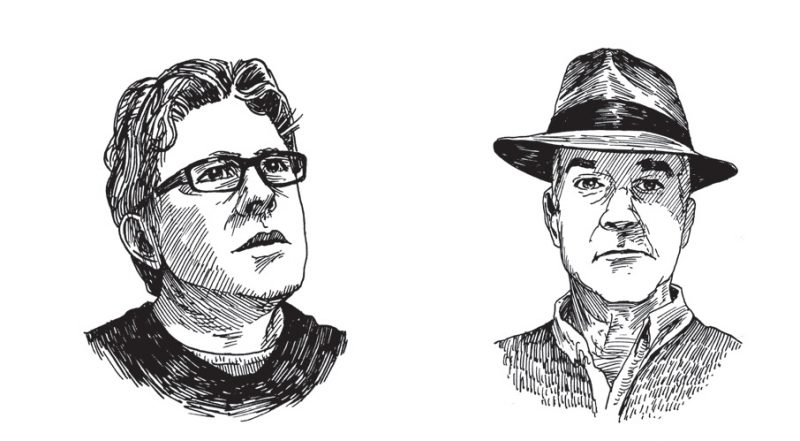Harry Mathews’s most recent book, a poetry collection called The New Tourism, opens with a six-part sequence about preparing the “perfect cooking butter” and seizing “the moment of perfection” when cooking an excellent egg. Devotees of Mathews’s writing (and we are many: join us) will be quick to build a mental bridge between “Butter and Eggs: A Didactic Poem” and Mathews’s early, awesome short-story-long-recipe, “Country Cooking from Central France: Roast Boned Rolled Stuffed Shoulder of Lamb (Farce Double).” One portion of the delight to be taken in running from the compressed quiet of the current work to the extravagant onrush of the earlier is in registering Mathews’s astonishing range. To say that he has written novels, stories, poems (haiku sequences included), and essays, and leave it at that, would be grossly reductive: each of his works, whether two or two hundred and fifty pages long, is a wonder cabinet of unpredictable intricacy.
My introduction to Mathews was the late-’90s Dalkey Archive reprints of his first suite of novels, The Conversions, Tlooth, and The Sinking of the Odradek Stadium, which I bought at the indispensable St. Mark’s Bookshop in Manhattan. Mathews’s novels worked on me the way Raymond Roussel’s (as I later learned) worked on Mathews: they opened me up to a completely new sense of how books could be just books, and marvelous ones, instead of half-assed windows onto the so-called real world. Subsequently spelunking into the labyrinthine thunder tunnels of Cigarettes, The Journalist, 20 Lines a Day, The Case of the Persevering Maltese, and My Life in CIA, has thankfully done nothing to set my head to rights.
Mathews may or may not ever have had a life in CIA, but he has certainly had a life in Oulipo, the France-based Ouvroir de littérature potentielle (Workshop for Potential Literature), known for constraint-based writing. Much has been made of his important connection to that group, but Mathews’s literary output is far from exclusively oulipian. When we met to talk over lunch in the fall of 2010 at La Ferronnerie, a bistro in the rue de la Chaise near his Paris apartment, it seemed more interesting to start elsewhere
—Laird Hunt
I. GERTRUDE STEIN IS DISAPPEARING INTO THE GLOAMING
HARRY MATTHEWS: I have to explain to you my situation at the moment, aside from suffering from physical and emotional exhaustion. You can see I’m enjoying life still. [We are sitting over handsome plates of jambon persillé with glasses of the excellent house red in hand]. I’ve started writing again. A small novella. I was almost through the first chapter...
You have reached your article limit
Sign up for a digital subscription and continue reading all new issues, plus our entire archives, for just $1.50/month.
Already a subscriber? Sign in





